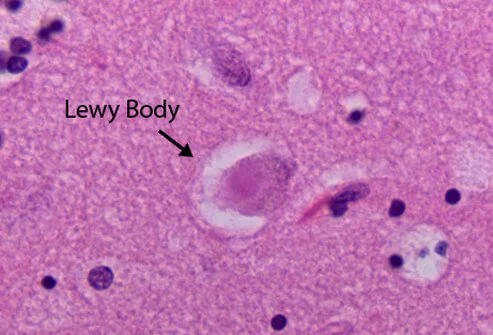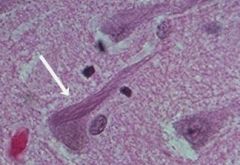Many resources cite Vascular Dementia as the second most common form of Dementia, however Lewy Body Dementia (LBD) runs neck-in-neck as far as statistics go and is as common as Vascular Dementia. What is Lewy Body Dementia? How is it different from other forms of Dementia?
Lewy Body Dementia is often misdiagnosed as Parkinson’s and/or Alzheimer’s. Much like a car that is not properly maintained will not exhibit noticeable symptoms immediately, the nerve cells that are affected by LBD can tend to reach a threshold of damage beofre the person who has the illness will start to exhibit differences in function or behavior.
Symptoms and Early Warning Signs
Typically, early signs include a person shuffling their feet while walking. This shuffling is not the same shuffling as when someone has a sore back. Rather, the feet shuffle in an almost erratic pattern, which can lead to rather violent falls. Shuffling while walking along with tremors is typically associated with Parkinson’s disease.
Another symptom is that the person will hallucinate. Many times, the hallucinations can be frightening and cause the person to be distressed or to panic. Forgetfulness and diminished interest in activities are also common symptoms which can lead to a misdiagnosis of Alzheimer’s or of Alzheimer’s with Parkinson’s.
What causes Lewy Body Dementia?
LBD is a result of protein deposits known as Lewy Bodies, sometimes called plaques, in the nerve cells of the brain. There are also plaques in the cells of patients with Alzheimer’s, but LBD patients do not have tangles in the nerve cells like Alzheimer’s patients do.
(Read blog on Alzheimer’s disease)


Disease and Pick Bodies in Frontotemporal Dementia (right)
These plaques act as road blocks and prevent the cells from communicating with one another. Because there are currently no methods available to find Lewy Bodies in living patients, these protein deposits can only be found post-mortem. There is no cure for LBD at this time. If you are observing these symptoms in your loved one, it is important to never assume what the problem is. Rather, take them to their Physician.
We at Care Placement understand the difficulties that Dementia can bring to the person who is suffering as well as to that person’s family and friends. When living alone safely is no longer an option, we can provide Board & Care and Assisted Living options that offer programs and care plans for folks suffering from various types of Dementia including LBD. An experienced counselor will talk with you about what the best options will be. We invite you to call us for a free consultation at (619) 660-8814.
